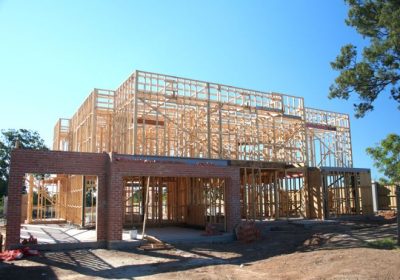How Does Property Investing Compare to Other Investment Options?
Real estate is a popular investment choice for many people. It has been shown to be an excellent way to generate income and increase your wealth over time.
However, you need to consider your goals when you decide whether property investing is right for you. You need to ask yourself if you want to buy a single-family home or a multifamily home.
1. It is a long-term investment
In the context of investment, long-term property investing is when you hold a financial asset for a significant length of time. This typically includes investments such as stocks and retirement accounts.
While long-term investing may be more risky, it can help you generate higher returns in the long run. This is because the price of an asset will fluctuate less frequently over a longer period of time than it would in the short-term.
A long-term investment is also a good way to build your savings for retirement. It allows you to earn higher returns while deferring capital gains taxes.
However, it can be difficult to know which type of investment is right for you. Fortunately, you can compare property investments with other investment options and find out which one is best for you.
Real estate is a popular option for long-term investors because it usually provides better returns than other investments. It can also be a safer option for people who aren’t very familiar with the stock market.
There are several different ways to invest in property, including buying a single-family home that can be rented out or purchasing a multi-family building that can be leased out. You can even invest in a property management company to manage the rental of your properties for you.
Another popular option is to buy an apartment or housing community and invest in a share of the development. These larger rental properties tend to be more hands-off and require fewer resources than small residential rentals.
If you’re unsure about whether to invest in real estate or other types of investment, you should talk to a professional. They can help you choose the right investment for your needs and provide guidance on how to best maximize the potential of your property investment.
2. It is a passive investment
Passive property investing is a strategy that allows investors to earn passive income through the purchase and management of real estate. It is similar to passive investment strategies in other areas, such as investing in dividend stocks and savings accounts.
Most people envision property investing as a simple way to generate income. But in reality, it requires a lot of work and can be frustrating. Many people assume that they will simply buy a rental property, collect checks from tenants every month and never have to do anything else. But this is not true of all investment properties.
In fact, active real estate investing can be a great opportunity for individuals with large amounts of money to invest, a long time horizon, and the expertise and time to manage the property themselves. However, this type of investing can also be extremely risky and not always profitable.
For this reason, some investors choose to invest in passive strategies instead. These include real estate investment trusts (REITs), master limited partnerships (MLPs), and real estate limited partnerships (RELPs).
The most common passive real estate strategy is investing in long-term rentals. These can be single-family homes or apartment buildings. These investments allow investors to avoid the expenses associated with tenant turnover, such as marketing and leasing fees, maintenance costs, and lease renewals.
This is especially important in commercial properties, as most tenants have leases of at least a year. Having a long-term lease can increase an investor’s profits and decrease their expenses.
Another advantage of passive real estate investments is liquidity. Since they are liquid, investors can quickly take out their money when they need it.
While passive real estate investing can be a great way to diversify your investment portfolio, it is still important to consider other options before making a decision. This includes real estate crowdfunding platforms, which can offer investors the chance to invest in real estate without having to pay hundreds of thousands of dollars.
3. It is a risky investment
As you can probably guess, property investing is a risky endeavor. It requires cash, time and due diligence to find a good investment and maintain the property over the long haul. Some will rely on a property manager, but this can cost money and reduce your profit margins.
One of the more impressive things about real estate is how it can increase in value over time. This is especially true for older homes or those that are in an area with a steady demand for housing.
This is the main reason why many people choose to invest in property. It has a track record of outperforming other investments like stocks and mutual funds.
There are also several tax benefits to owning, renting and managing a rental property. In particular, you may be able to claim deductions for property taxes or mortgage interest payments on your taxes.
Using the right financing, you could even finance your purchase with a high-yielding bank loan that enables you to rent out the property for a handsome ROI.
Despite the risk involved, property investing is still a viable option for anyone interested in long-term financial security. The key to success is balancing your expectations with your budget and sticking with it. The best way to do this is by researching the pros and cons of each of the various investment options before making a decision.
4. It is a speculative investment
While property investing has the potential to be profitable, it also comes with its share of risk. Whether you’re new to the market or have been a longtime investor, it’s important to consider all of your options before making an investment.
One of the primary differences between property investing and other investments is that it’s a speculative investment. Speculation involves the act of buying an asset and selling it for a profit. This strategy is commonly used in real estate and forex markets, where it can lead to large losses if prices decline quickly.
Another difference between speculating and investing is that investors tend to have a longer-term perspective on an asset. For example, when buying a piece of real estate, you may want to hold it for a decade or more before you sell it. Similarly, when you buy shares in a company, you’ll probably want to hold them for years before selling them for a profit.
Despite its negative reputation, speculating can be a useful way to gain knowledge about the market and help create liquidity. It also allows companies to raise funds when they might not otherwise be able to.
Some people also invest in a more passive way, such as real estate investment trusts (REITs). These vehicles allow investors to purchase shares of income-generating properties with other investors.
While a REIT can be a great way to earn a high return on investment, it can also carry significant risks and take a lot of time to manage. That’s why you’ll likely want to keep your REIT investment in a well-diversified portfolio.
In addition to putting your money into the stock market, you can also make a lot of money by buying and selling foreign currencies. Traders who buy and sell futures contracts are also popular speculators. This can be a good strategy for those who have the time and resources to make the right decisions.
5. It is a volatile investment
While it is true that real estate investments have the potential to generate higher returns than stocks, they are also subject to volatility. This is a major reason why it is important to diversify your investment portfolio.
Another reason why property investing is a volatile investment is because it requires the maintenance of properties. Whether you buy a single residential house or a multi-unit apartment building, you have to make sure that it is in good condition and can be rented out to tenants. If you are not careful, your property could fall into disrepair or become a blight in the neighborhood. In these cases, the value of your property could drop significantly or even collapse altogether.
Nevertheless, real estate still remains one of the best investment options available. It is also a long-term investment that can offer significant tax benefits. Moreover, it is less risky and is suitable for people with moderate levels of risk tolerance. While it can be a great investment option, you should always consider your financial situation and your needs before making any decision. You may need to invest a large amount of cash and dedicate a lot of time and effort. This is why it is a good idea to consult with an expert before investing in real estate.










